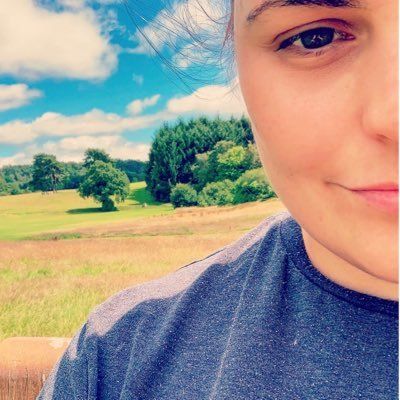

Hannah's story
Hannah is a Physiotherapist in Birmingham. Since experiencing Post-COVID Syndrome she has established the twitter account @LongCOVIDPhysio which is a peer support tool for Physios as well as the Long COVID Physio podcast hosted on YouTube.
I first heard about COVID-19 when the news first broke about the increase in deaths in China. I never really thought much of it at the time - just wrote it off as another virus that would be contained and written off pretty quickly, especially since it was in China. It wasn’t until I saw the news breaking about the death toll in Italy before I really began to develop anxieties.
I began working at The Royal Orthopaedic Hospital in March 2020, just before covid 19 was declared to be a global pandemic by the WHO. My first experience of COVID-19 was when my grandad sadly passed away as a result of the virus in April 2020.
In May, 2020 - whilst at work, I began to feel unwell. Dizziness, fatigue and the worst headache I had ever experienced made me discuss the potential of getting a swab test with my line manager. Two days later I was diagnosed with COVID-19 via telephone call from occupational health. For the following 2 weeks I self isolated and rested in my bedroom, and I spent 3 weeks in total off work while I recovered.
My symptoms were very textbook COVID-19. Fatigue, headache, cough, loss of smell and taste, breathlessness. I also had gastro-intestinal problems, and aching in my kidneys. At my worst, I found it very difficult to stand, and walking around my house or standing for 2 mins left me feeling very fatigued and breathless - almost like I was going to faint.
When I returned to work I was still feeling very breathless, but assumed that this would improve as I became more active - and in some part, it did. It wasn’t before long that I was back to full duties, working on the wards and then later moved into physiotherapy out-patients. I was very happy to be back at work helping patients and supporting my colleagues in their new work patterns - and this kept me going through each day.
By August, I was exhausted. I thought this was due to working hard, adjusting to new and changing shift patterns, changes in caseload. However, on reflection and after researching long covid and discussing with a colleague - I began to appreciate just how much I was being impacted by my persistent COVID-19 symptoms.
My symptoms would fluctuate from one day to the next - exhaustion was consistent, often masked with caffeine to help me get through each day. Breathlessness was on going and I also had an intermittent cough and dizziness.
In October 2020, my father was also diagnosed with COVID-19 and was soon admitted to hospital due to the severity of his symptoms. Thankfully, he recovered quickly and spent a week in hospital receiving oxygen therapy and antiviral steroid medication.
In November 2020, after discussion with my supervisor at work, and “crashing” with exhaustion and fatigue which would last all weekend, I decided to discuss my ongoing symptoms with my GP. He agreed that my symptoms correlated with the emerging evidence of post COVID syndrome and felt that I would need to be signed off sick from work in order to recover.
Over the last 5 weeks I have spent a lot of time at home monitoring my symptoms and researching post COVID syndrome. At times my resting HR can be at high as 101BPM and can reach 180-190BPM walking up stairs. My oxygen levels can oscillate between 92%-100%. If I exert myself, or do a little bit more in the day time, 2-3 days later I will crash from exhaustion and emotional overload. This will last for 3-4 days and means that my normal activities, such as getting dressed, cooking dinner, are extremely difficult - which is very frustrating!
I have recognised that my mental health has taken a blow and I am extremely anxious a lot of the time, which has a detrimental effect on my current relationship. I am thankful to have such a caring and supportive partner to help me through and care for me on days when I am unable.
I hope to return to work soon. Since being at home, I have learnt a lot about how to manage my symptoms and reduce my levels of fatigue. I have recognised the importance of pacing and selecting my actives accordingly, whilst monitoring my HR throughout the day in order to prevent the onslaught of post-exertional malaise.
Follow the Long COVID Physio on twitter and listen to the podcast
